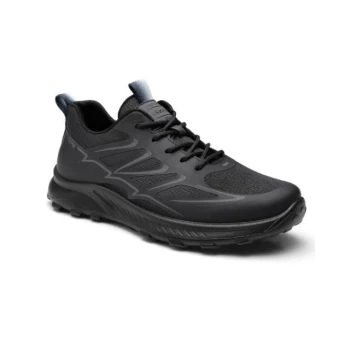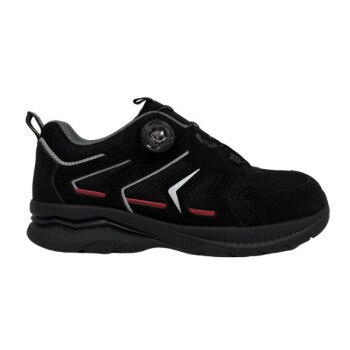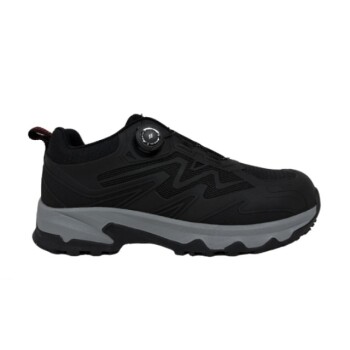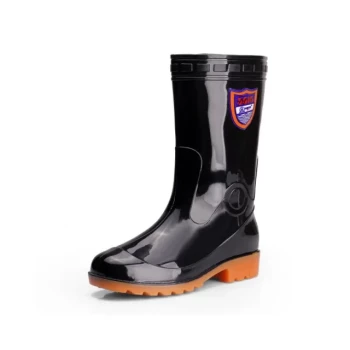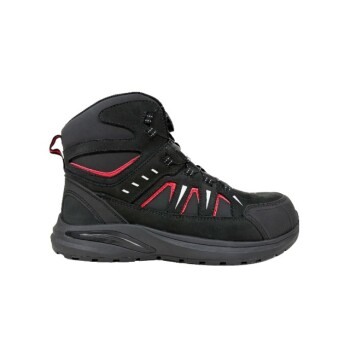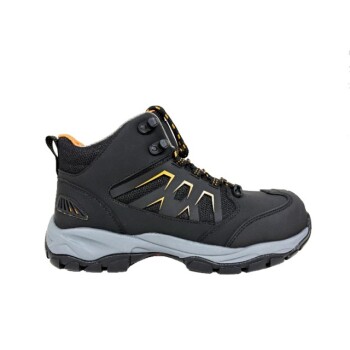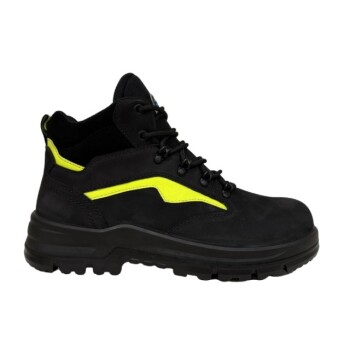In short, Polyurethane (PU) soles are highly valued for their unique combination of four key benefits. They are exceptionally lightweight, which reduces foot fatigue, while also being hard-wearing and resistant to abrasion. Furthermore, they provide excellent shock absorption for comfort and reliable resistance to slipping, making them a versatile and practical choice for many types of footwear.
The central takeaway is not that one sole material is universally superior, but that each serves a specific purpose. Polyurethane's strength lies in its balanced blend of lightweight comfort and rugged durability, making it an ideal material for practical, everyday use and demanding work environments.
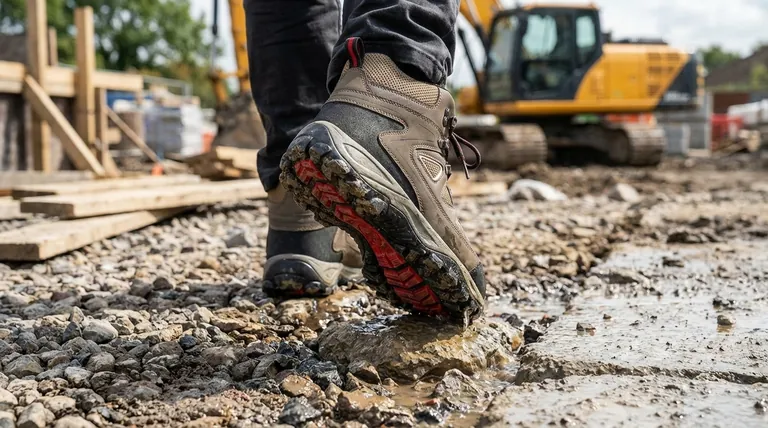
The Core Properties of Polyurethane (PU) Soles
To understand the benefits of PU soles, we must first examine their fundamental material characteristics. These properties translate directly into tangible advantages for the wearer.
Lightweight for Reduced Fatigue
A significant advantage of polyurethane is its low density. This results in a sole that is noticeably lighter than many alternatives, such as solid rubber or leather.
This reduction in weight directly contributes to less fatigue over a long day of walking or standing, making PU an excellent choice for work boots or all-day comfort shoes.
Excellent Durability and Abrasion Resistance
PU is an incredibly durable plastic material. It is engineered to resist abrasion and wear from contact with rough surfaces.
This inherent toughness means that PU soles last a long time, maintaining their structure and performance even with consistent use.
Superior Shock Absorption
The cellular structure of polyurethane is excellent at absorbing shock. Each step you take generates impact forces that travel up through your body.
PU soles effectively cushion these impacts, protecting your joints and providing a more comfortable walking experience compared to harder, less forgiving materials like traditional leather.
Reliable Slip Resistance
PU soles can be molded to create effective tread patterns that offer good resistance to slipping.
This property makes them a safe and practical option for footwear used in various conditions, especially for outdoor jobs in construction or gardening where reliable footing is critical.
Understanding the Trade-offs: PU vs. Other Materials
No single material is perfect for every application. The decision to choose a PU sole becomes clearer when compared to other common options.
PU vs. Rubber
Rubber soles are renowned for their exceptional grip and durability, which is why they are often the choice for premium sneakers and heavy-duty performance footwear.
While PU is very durable, high-quality rubber can sometimes offer superior longevity and traction in specific high-performance scenarios. However, PU is typically lighter than a comparable solid rubber sole.
PU vs. Leather
Leather soles provide a classic elegance and breathability that is unmatched. They are the traditional choice for formal dress shoes.
However, leather falls short in practical performance. It offers poor grip in wet conditions and wears down much faster than polyurethane, which provides superior durability and all-weather traction.
PU vs. Crepe
Crepe soles are very lightweight and offer a distinct, soft cushioning. They provide excellent comfort for casual wear.
Their primary drawback is a lack of durability. Crepe wears down very quickly, whereas PU offers a far more hard-wearing solution that better balances comfort with a long lifespan.
Making the Right Choice for Your Footwear
Selecting the right sole depends entirely on your priorities and how you intend to use the footwear.
- If your primary focus is all-day comfort and reduced fatigue: Polyurethane's lightweight nature and excellent shock absorption make it a superior choice.
- If your primary focus is durability for outdoor or demanding work: The high abrasion resistance and non-slip properties of a PU sole are ideal.
- If your primary focus is peak performance and grip for athletic use: A high-quality rubber sole may be the better-performing option.
- If your primary focus is traditional style for formal occasions: Leather remains the classic choice, though you sacrifice the practical benefits of PU.
Ultimately, understanding these material properties empowers you to select a sole that truly serves your specific purpose.
Summary Table:
| Benefit | Key Characteristic | Ideal For |
|---|---|---|
| Lightweight | Reduces foot fatigue | All-day work boots, comfort shoes |
| Durability | High abrasion resistance | Outdoor work, demanding environments |
| Shock Absorption | Cushions impact on joints | Long periods of walking or standing |
| Slip Resistance | Reliable traction | Construction, gardening, varied conditions |
Ready to integrate high-performance Polyurethane soles into your footwear line?
As a large-scale manufacturer, 3515 produces a comprehensive range of footwear for distributors, brand owners, and bulk clients. Our production capabilities encompass all types of shoes and boots, and we can expertly incorporate PU soles to deliver the perfect balance of comfort, durability, and safety your customers need.
Contact our team today to discuss your manufacturing needs and discover how we can add value to your product line.
Visual Guide
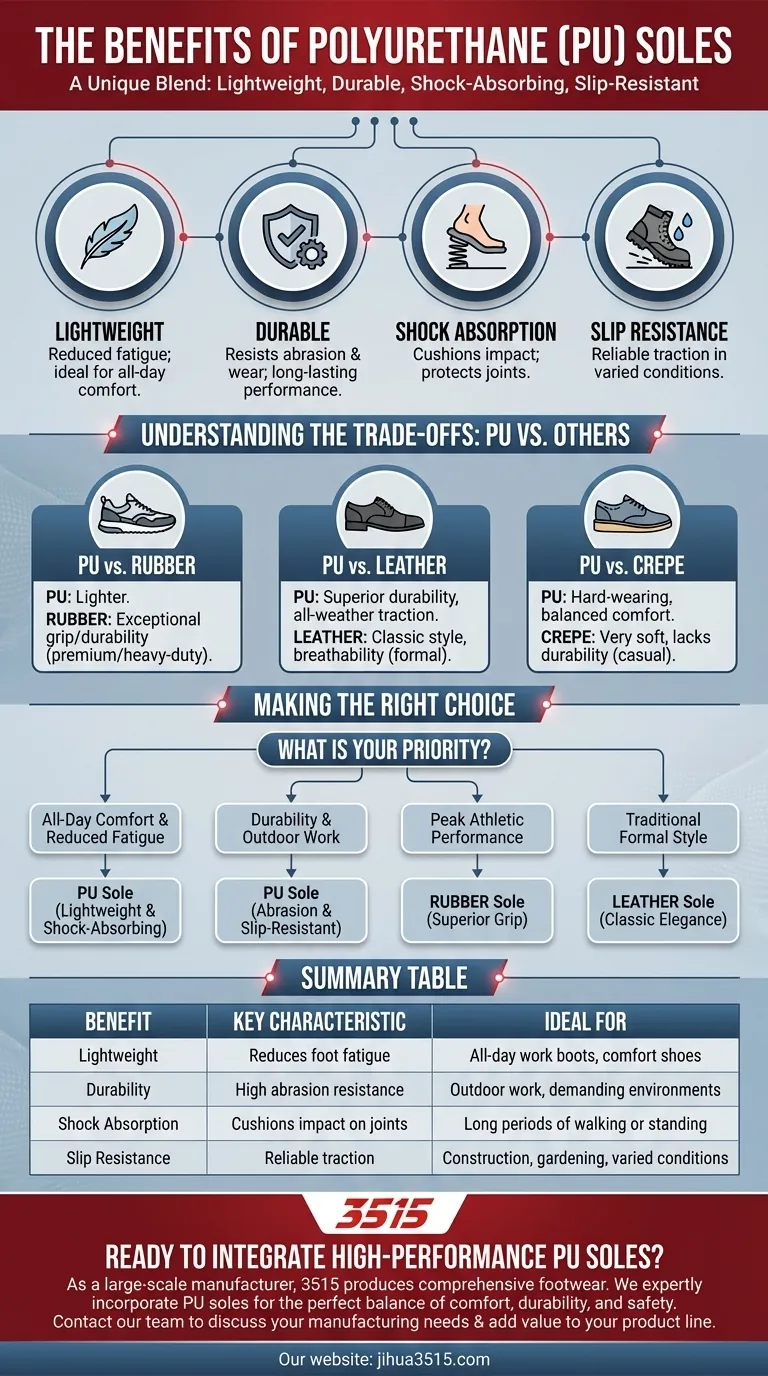
Related Products
- Safety Footwear Wholesale Manufacturer for Custom OEM/ODM Production
- Custom OEM Training Shoes Wholesale Manufacturer Durable & Breathable
- Wholesale Comfortable Business Casual Shoes Custom Manufacturing
- Premium Safety Shoes with Rotating Buckle Safety Sneakers
- Durable Moc-Toe Wedge Work Boots | Wholesale Manufacturing for Brands
People Also Ask
- What are the cultural perspectives on wearing shoes in the house? A Guide to Home Etiquette & Hygiene
- What are the differences between steel toe, composite toe, and alloy toe Wellington boots? Choose the Right Safety Toe for Your Job
- What do heavy duty boots do? Protect Your Feet in Demanding Work Environments
- How do safety shoes contribute to cost savings for companies? A Strategic Investment in Risk and Cost Management
- What cultural and environmental considerations are tied to wearing shoes indoors? Balance Hygiene, Tradition, and Foot Health

